In France, it was Antoine-Augustin Parmentier (1737–1813) who ensured the popularity of the potato with the help of King Louis XVI. The British, on the other hand, were way ahead of the curve. In 1585, the state-funded pirate Sir Walter Raleigh founded a North American colony that he named Virginia in honour of his virgin sponsor Queen Elizabeth I. Potatoes were growing in Virginia, and Raleigh had them sent back to England via his expedition scientist Thomas Hariot.
Once back in his estate in County Cork, Ireland, Raleigh planted the first potato plantation in the British Isles. From there, potatoes spread to mainland UK, and on into Europe, taking 40 years to fully diffuse throughout the continent.
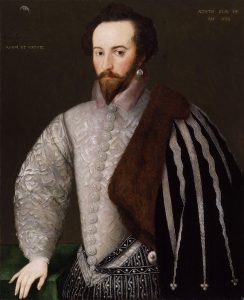
Sir Walter Raleigh (1554–1618 – Painting by ‘H’ hanging in the National Portrait Gallery
Note that I have read that potatoes were known to the English prior to Raleigh via contact with the Spanish, but most sources agree that Raleigh’s allotment was the vital spark. Transatlantic potato transport has also been credited to Sir Francis Drake who was involved in a rescue of colonists from Roanoke, Virginia in 1586.
Potatoes were found to be easy to grow, and they became an important staple food. So much so that when the potato crop failed due to disease in 1845, it caused a 20%–25% drop in the Irish population due to disease, starvation or desperate emigration.
In Britain, there is something of a tradition for a family dinner on a Sunday that includes some kind of roasted meat joint. It is probably fair to say that ‘peak roast’ was probably some time in the back end of the last Century, but it is a tradition that I try to keep at home. I have enjoyed a roast on Sundays almost every week since I first bought a house in 1995. Twenty-three years of cooking roast dinners has taught me one important thing: timing is everything. Once you know your timings and have your prep done, a traditional British roast dinner is an absolute doddle to do.
Depending on your chosen meat, it can very often be that the rate-determining step is the roast potatoes. At 45 minutes cooking time, they take about as long as a leg of lamb, and only marginally less than a chicken.
Everybody I know has their own way of doing roast potatoes, but the recipes that are most successful include four key elements:
- The right potatoes. They ought to be floury potatoes so that the surface breaks up a little when parboiled.
- Parboiling for just long enough to break up the surface of the potatoes to enable the fat to penetrate and crisp up the potatoes.
- The right fat, nice and hot. At some point in the 1970s people started using oil. This was probably because lard, and other white fats were becoming unfashionable. This is poppycock. You need goose or duck fat at least. If all the diners eat red meat, then beef dripping is sublime. And you need a lot of fat. Jay Rayner goes for half a centimetre depth of it. We use about half that.
- Seasoning. Roast potatoes are not a low-sodium dish. If you want to avoid salt, then make something else. Salt helps enormously with the crisping, and adds the tang needed to offset the fat. I also use pepper and herbs because … why not?
Rosemary roast potatoes
Ingredients
- 4–6 tbsp goose fat or beef dripping
- 4–6 Maris Piper potatoes, peeled and cut into large pieces
- 2 tbsp fresh rosemary, chopped
- Sea salt and freshly ground black pepper
Instructions
Heat an oven to 220˚C.
Add the potatoes to a pan of cold water. Bring the water to the boil and parboil the potatoes for 6 minutes. Drain and shake in a colander to roughen the edges.
Heat the fat in the oven on a deep baking tray or in a medium-sized roasting pan (note that roast potatoes can be done in an flat-bottomed, oven-proof, earthenware dish, which can make serving a little easier). Remove from the oven and add the potatoes. Turn the potatoes over in the fat to coat them. Season (heavy on the salt) and sprinkle the rosemary over.
Roast the potatoes in the oven for 45 minutes, turning occasionally.
Notes
Andrew has a similar, but modified method of making roast potatoes. He parboils for 8 minutes, and then tosses the potatoes in seasoned, ground semolina for extra crisp. Semolina is becoming a popular hack for roast potatoes due to the activities of cooks like Nigella Lawson and the Sorted Food crowd. Roast potatoes can be done in advance and kept warm or warmed up at about 100˚C in an oven or an air fryer.
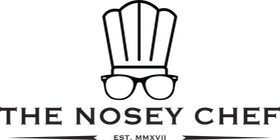
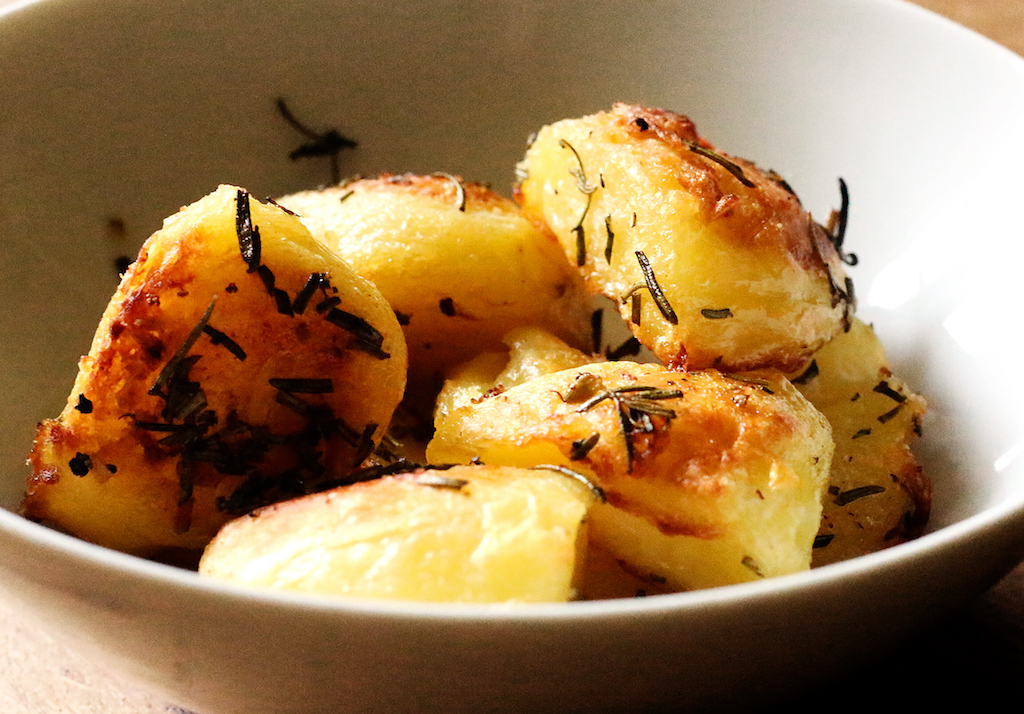

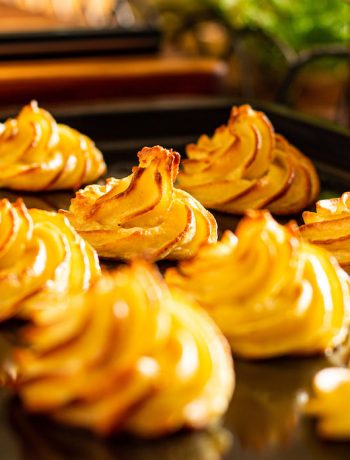
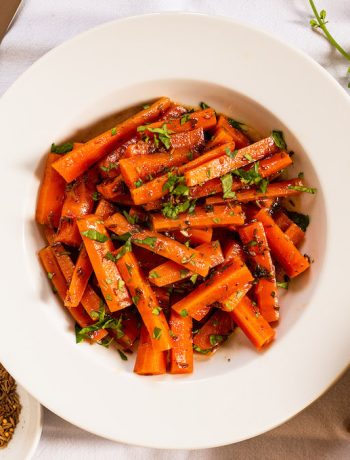
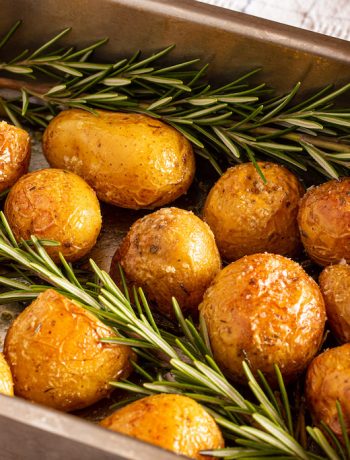
1 Comment
Valentine’s Day| The best romantic Tuscan Dinner you should cook to your sweetheart - Mugello & Tuscany
14/02/2025 at 9:06 am[…] Side Dish: Tuscan Roasted Potatoes […]